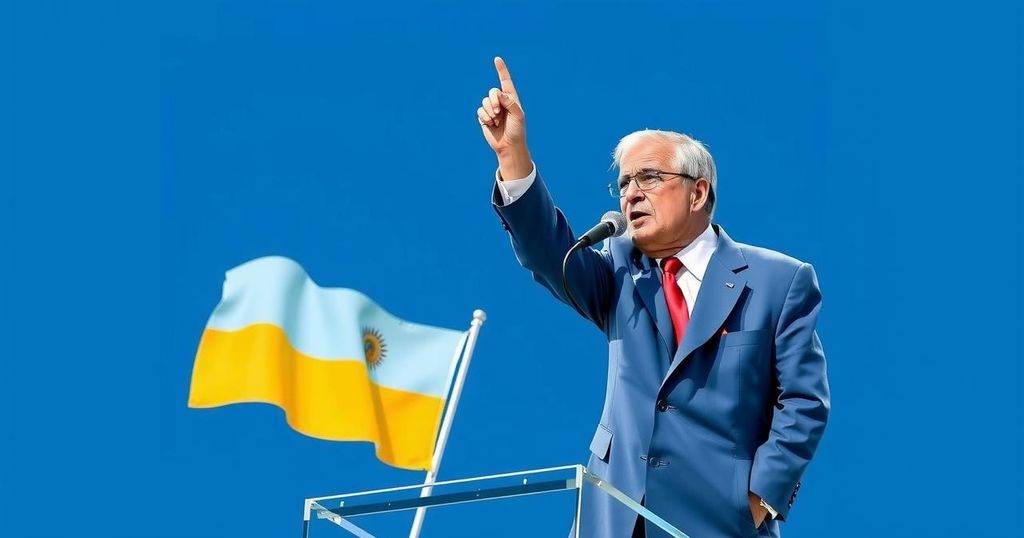Uruguay prepares for a significant presidential runoff between Yamandu Orsi and Alvaro Delgado, with polls indicating a tight race. Orsi represents the Broad Front and advocates progressive policies, while Delgado seeks to maintain continuity from the current administration. With economic factors at play, this election reflects broader global voting trends and voter sentiments regarding incumbency and change.
In the serene nation of Uruguay, known for its picturesque beaches and progressive policies, voters are poised to cast their ballots in a crucial presidential runoff on Sunday. The closely contested race features opposition candidate Yamandu Orsi from the Broad Front, who advocates for a modern left approach, against Alvaro Delgado, the conservative continuity candidate backed by allies. With recent polls indicating a potential voter margin of less than 25,000, this election is anticipated to be particularly competitive.
Unlike the polarized political climates seen in nearby countries, Uruguay’s political landscape exhibits a level of tranquility, with notable overlaps among the various parties. Polling locations will be open from 8 a.m. to 7:30 p.m. local time, with initial results expected a couple of hours after polls close. Both candidates are vying for votes from approximately 8% of the electorate who previously supported smaller parties or did not vote in the first round.
Yamandu Orsi garnered 43.9% of the votes in October, while Alvaro Delgado received 26.8%. Delgado aims to continue the policies of President Luis Lacalle Pou, who, due to constitutional limits, is ineligible to seek immediate re-election. Meanwhile, Orsi contends that his party’s recent Senate majority positions him well to lead effectively, despite neither coalition securing an absolute majority in the parliamentary elections. Both candidates appear hesitant to adopt new pledges that might sway undecided voters, even as many citizens express uncertainty regarding their choices.
As a significant year for elections worldwide draws to a close, observers are keen to see if Uruguay’s results will reflect a deviation from the global trend, where incumbent parties have been increasingly losing support. Contributing to this dynamic is Uruguay’s resilient economic outlook, which may influence voter sentiment in favor of continuity.
The context of this runoff election is set against a backdrop of heightened electoral activity within Uruguay, a nation with a relatively peaceful political climate compared to its South American neighbors. Following a year marked by various national elections, this presidential race features moderate candidates with a focus on continuity versus reform. The results could have broad implications for Uruguay’s future policies, especially in light of global trends in voter dissatisfaction. Reports have suggested that economic conditions may steer public opinion, which could favor incumbent-aligned candidates as voters weigh stability against change.
In summary, the upcoming presidential runoff in Uruguay stands as a critical moment for the nation, reflecting a blend of moderate political dynamics amidst global electoral challenges. The close race between Yamandu Orsi and Alvaro Delgado highlights a choice between potential reform and continuity. Given the economic context and unique political landscape, voter preference may ultimately affirm or challenge the existing governmental direction, setting a precedent for future elections in Uruguay.
Original Source: www.ndtv.com






